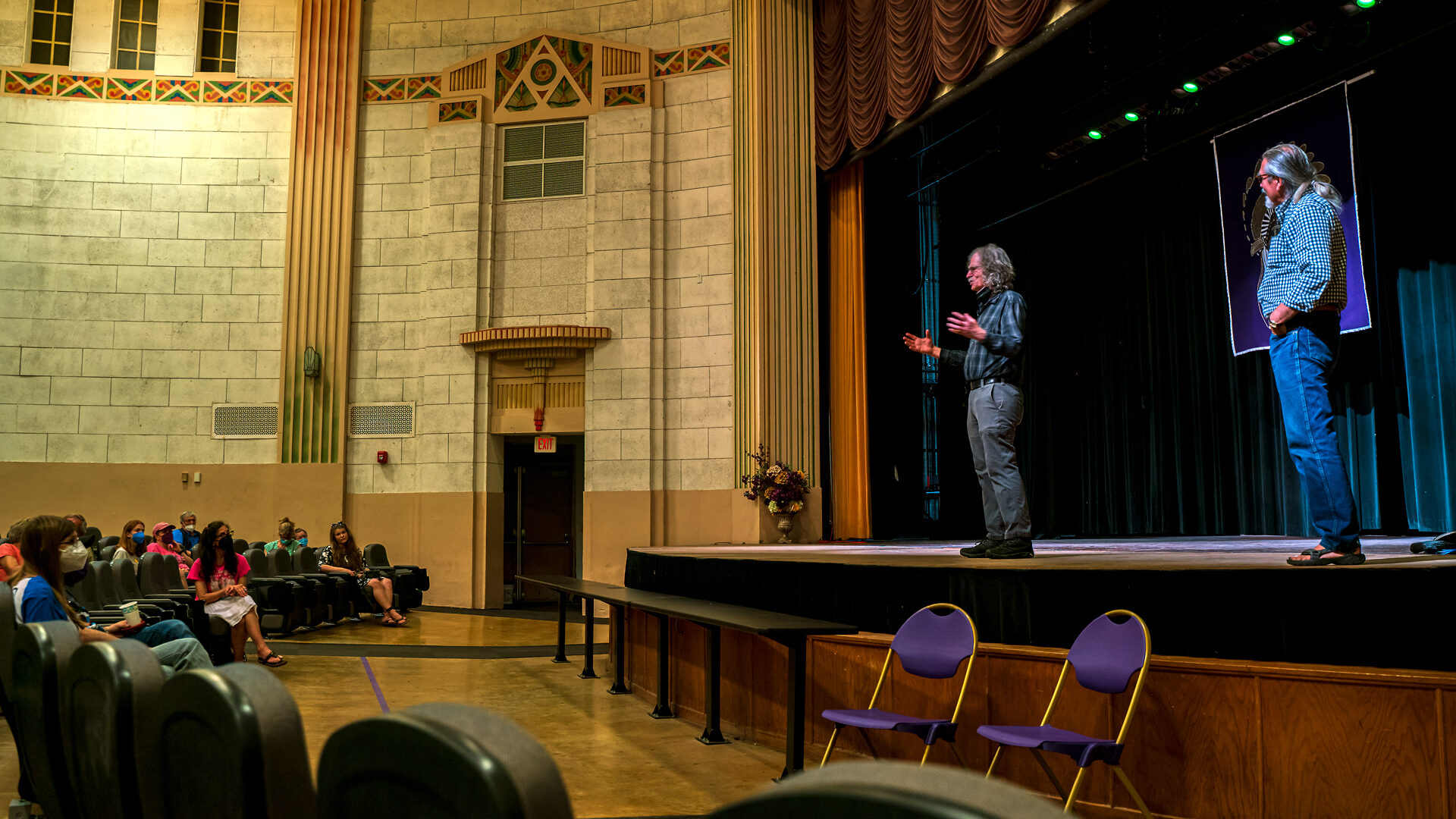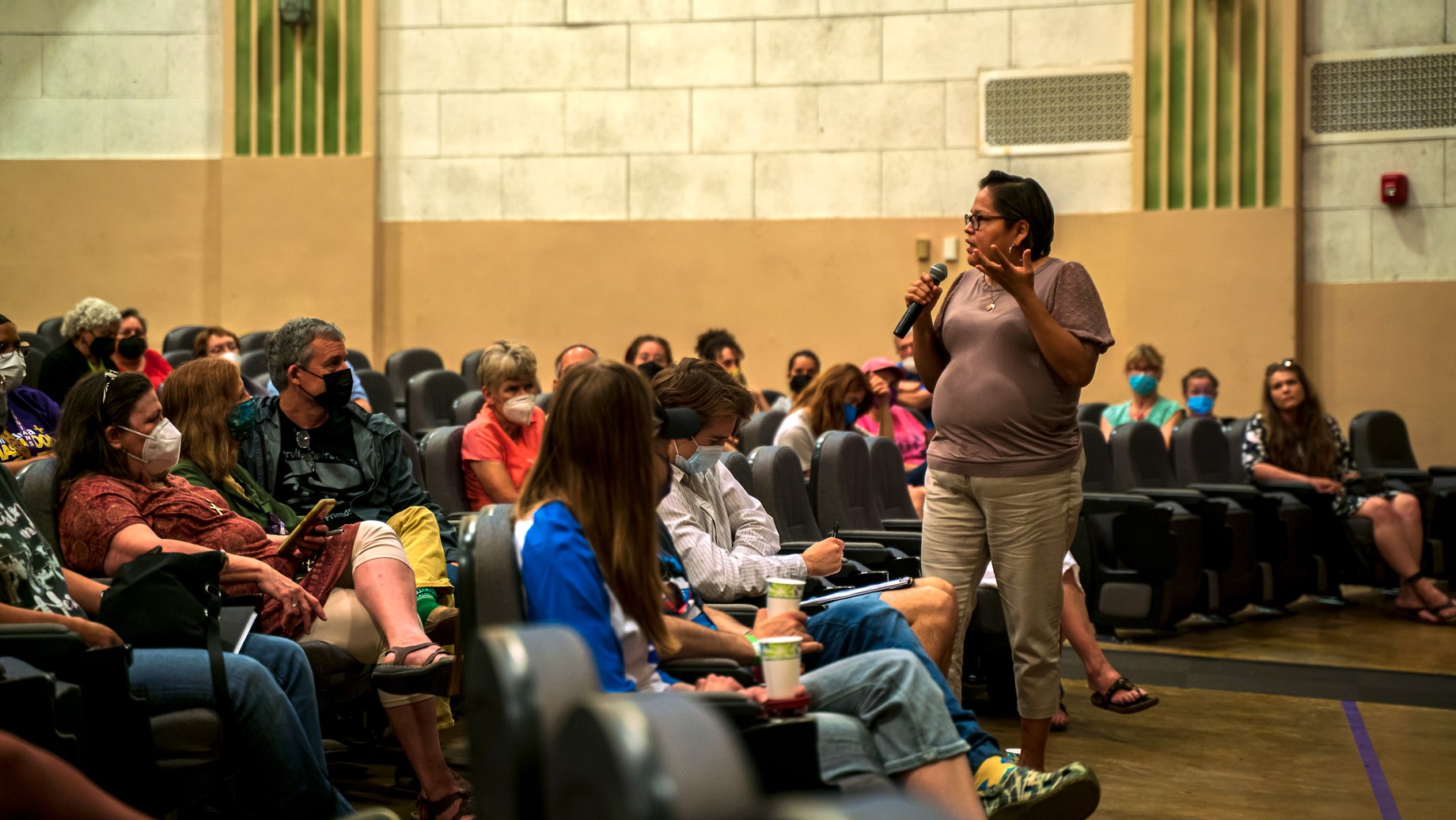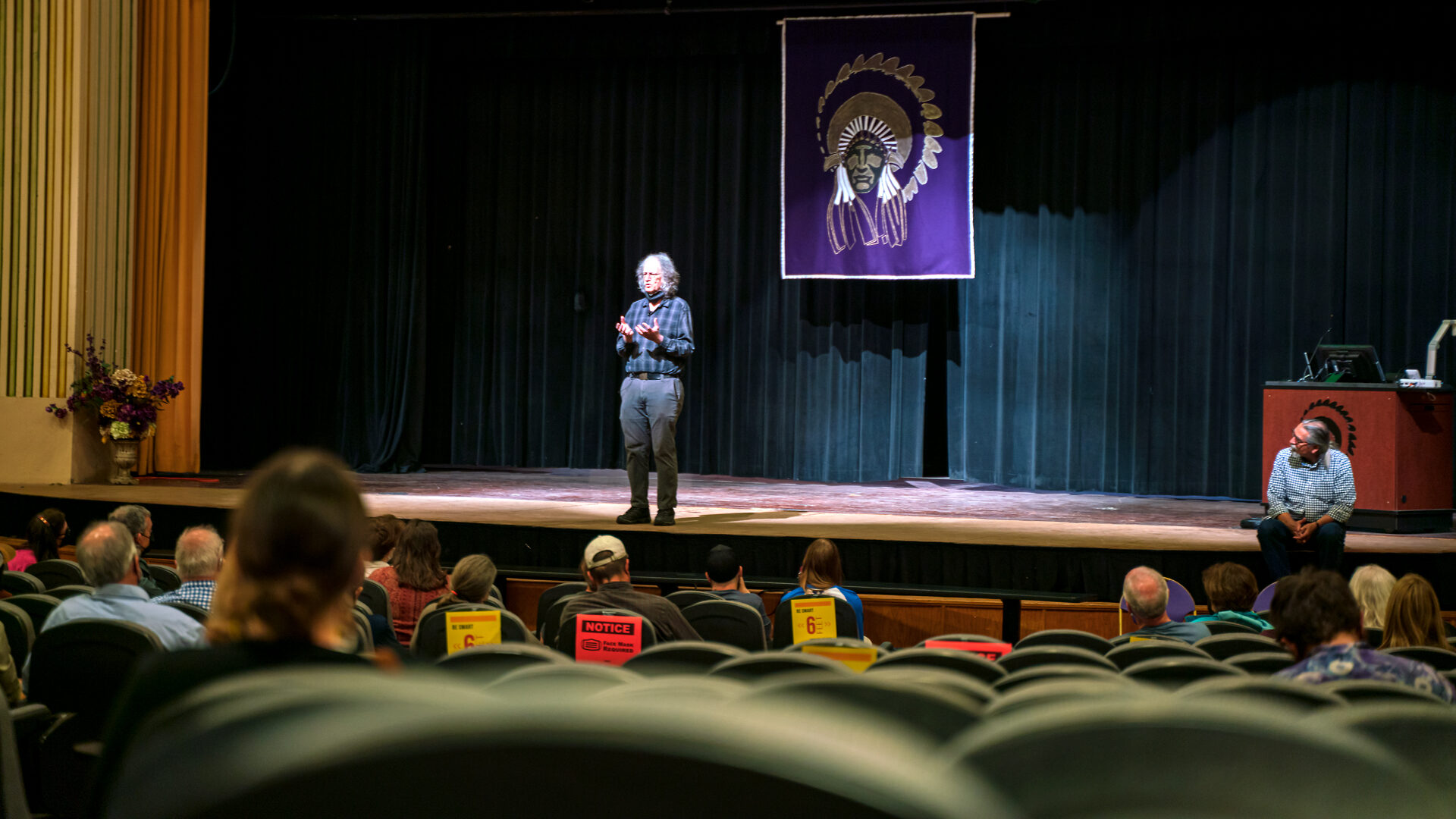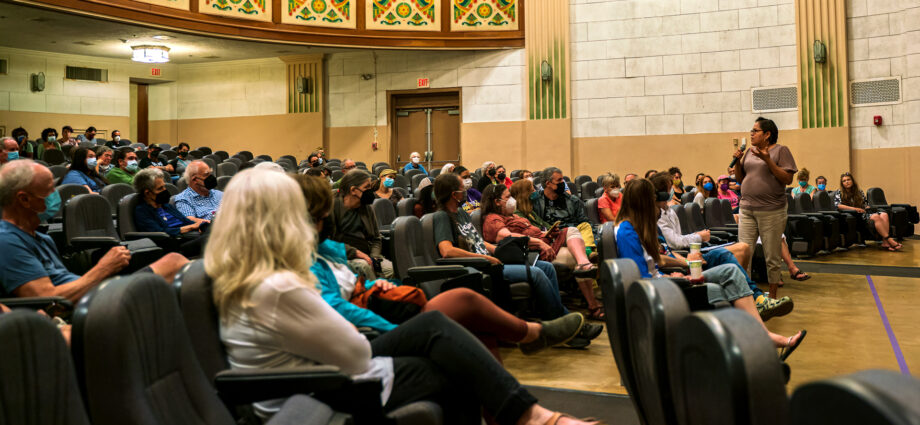The Step by Step project began their state-wide initiative of hosting conversations on the climate change crisis and how individuals can become involved. On June 9th, 2022, their first event was held at the auditorium at the Haskell Indian Nations University with various members of the Lawrence community in attendance. Dr. Daniel Wildcat, Yuchi member of the Muscogee Nation of Oklahoma, was a key speaker for this event.
The Step by Step project is a new project from filmmaker and clinical psychologist Stephen Lerner and fellow filmmaker Jim Jewell who plan to travel to various communities to host conversations with locals about their thoughts on climate change and how they can take actionable steps to alleviate the individual burden.

Dr. Dan Wildcat began with a land acknowledgment that far exceeded the performative addresses of prior local events. By setting the context of existing on Kaw and Osage land, Wildcat cited the importance of considering their reciprocal relation to the land and how that can be honored. He also addressed the reality of Haskell being a residential school for young Indigenous children and the power in shifting the purpose of an institute from one of cultural erasure to one of empowerment.
The event moved inside where Wildcat began speaking on key principles he wrote in his book Red Alert!: Saving the Planet with Indigenous Knowledge. He expressed the need of a paradigm/worldview shift from resources to relatives and rights to responsibilities. “We need a cultural climate change.” Wildcat said.
“Indigenous people will be some of the most important voices in this century.” Further highlighting the idea of Indigenous realism. An excerpt from his 2001 book expounds on this idea, “Indigenous realism [is] a living system of knowledge, one that is not frozen in time, but a deep experiential knowledge that is capable of change and innovation, the ability to figure out what works in a particular place for the people of that place.”
“Indigenous people will be some of the most important voices in this century.”
Dr. Wildcat, 2022
Another key issue he touched upon was the notion of “sustainability” from corporations. “I don’t think I want to sustain what [predominant society] wants to sustain.” Wildcat noted that sentiment was expressed to him by a former colleague.
As a closing to his talk, Wildcat urged people to remain humble and exude compassion for their life and existence around them. Furthermore, he encouraged one to ask: “How have I promoted life systems on this planet?”
After the talk from Wildcat, Steve Lerner asked people to divide into groups and ponder the following questions:
How does your upbringing contrast with the worldview Wildcat presented?
When was the last time you were in tune with nature?
The group of about 70 people broke into five groups to give individuals the chance to share their views on the questions. The group came back together and had a larger discussion.

One participant gave great advice: get active within your local community. There is power in finding like-minded individuals. Find groups like Sierra Club and the Resilient Activist. Lerner mentioned people can find a list of groups at the following website: stepbystepkansas.com.
Another participant mentioned that climate change is about consumption not carbon dioxide. He also emphasized the sober reality of the situation, “We need to work a lot faster… Have some urgency about what’s going to happen.” He elaborated that there are many societal changes we can make today to limit our consumption such lowering the speed limits from 70/80 mph to 60 mph.
Another key idea from the discussion includes the need to move away from the “property-centered European model” towards a model similar to what Wildcat presented.
Lerner highlighted a key point from the Step By Step program, “If everyone did the same small steps, we could make giant steps.” Elaborating that it’s easy for individuals to feel like they do not have power in national issues and to ease that would be to find solidarity with like-minded individuals.

The event closed with the opportunity for anyone who might want to appear on camera to share their thoughts on the experience. The clips are reported to be shown in other discussions across the state. If you would like to become more involved in this project or other local organizations, you can view more information at stepbystepkansas.com.

